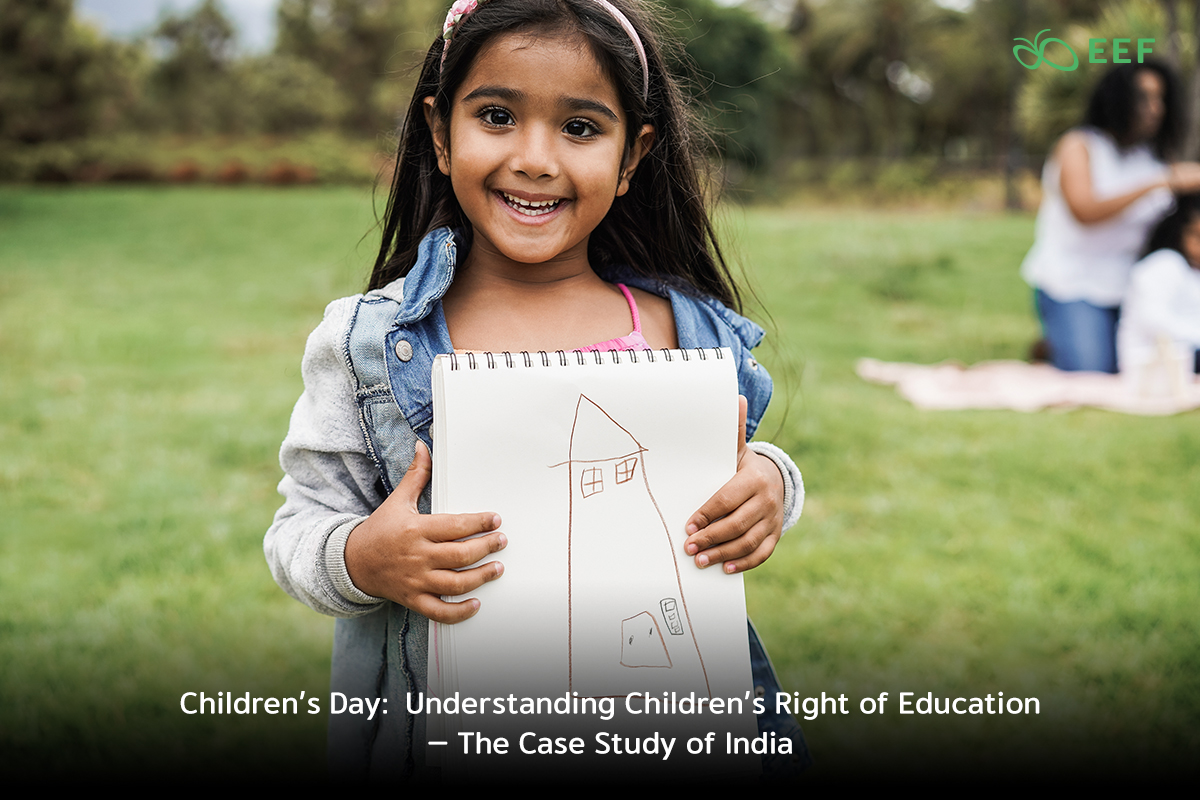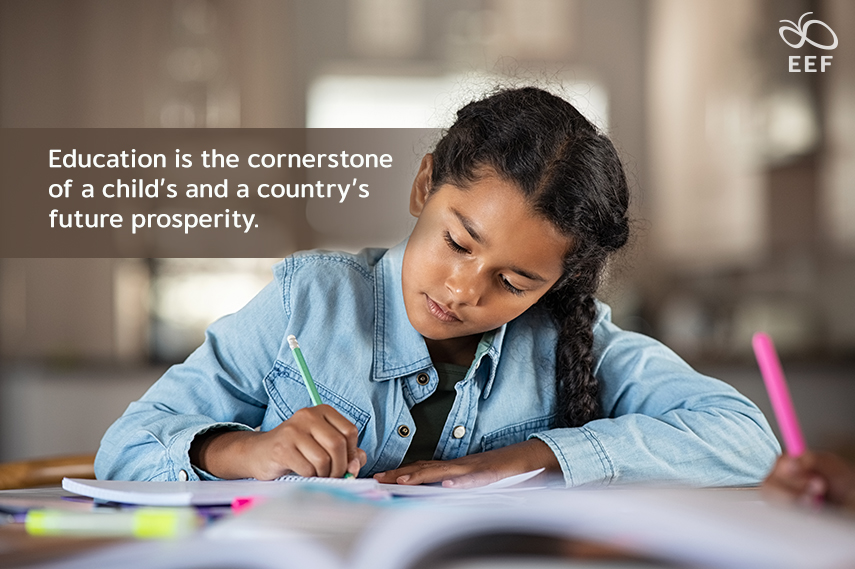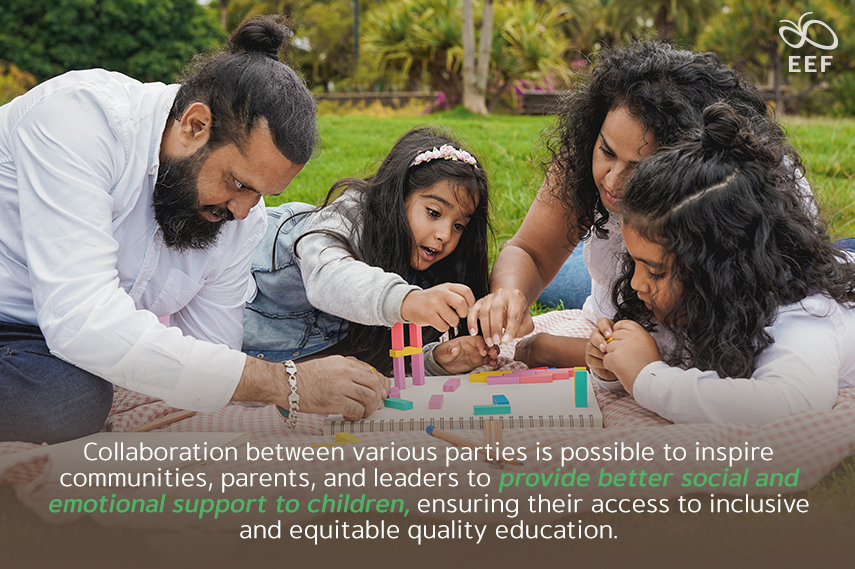
Every year on November 14th, Children’s Day is observed across India as a way to raise public awareness about children’s rights, care, and education as well as the importance of the right to education for both children and the country as a whole. To mark this occasion, numerous educational and motivational events are held all over the country, both by and for children. The day is also celebrated as a memorial to the country’s first Prime Minister, Jawaharlal Nehru, who advocated for children to have a quality education, deeply convinced that they are the backbone of society.
The right to education is as much a stepping stone to other human rights — a fundamental human right indispensable for the exercise of all other human rights — as an equalizing force that brings about equality in society, lifting socially excluded children and adults out of poverty into society, leveling inequalities, and ensuring sustainable development. Thanks to its indispensability to maintain and enhance an individual’s inherent dignity, the right to quality education are already firmly rooted in the Universal Declaration of Human Rights.

Quality education ensures children’s holistic development, which not only gives them opportunities to live better lives but also shapes society at large; With the proper education, a child can substantially contribute to the country’s progress and advancement at a significantly faster pace. Thus, education is the cornerstone of a child’s and a country’s future prosperity — in other words, the most sustainable investment.
In India, Article 21-A was added to the Constitution in 2002 as part of the Constitution Act, making all children between the ages of 6 and 14 entitled to free and compulsory education as a fundamental right. As stated in the Right of Children to Free and Compulsory Education (RTE) Act 2009 under Article 21-A, every child has a right to a full-time elementary education of satisfactory and equitable quality in a formal school that complies with essential norms and standards, without being liable to pay any kind of fee, charges, or expenses that may prevent them from pursuing and completing elementary education. The Act also outlines the obligations and responsibilities of the relevant state and local governments in providing free and compulsory education, as well as in sharing financial and other responsibilities between the Central and State Governments.
The RTE Act lays down the norms and standards relating, among other things, to Pupil Teacher Ratios (PTRs), teacher-working hours, and teacher requisite entry and academic qualifications, thereby ensuring that there is no urban-rural imbalance in teacher postings and no deployment of teachers for non-educational work, other than decennial censuses, elections to local authorities, and state legislatures and parliaments. This helps prevent physical punishment and mental harassment, screening procedures for admission of children, capitation fee, and private tuition by teachers, all while ensuring the development of curricula following the values specified in the Constitution, and thereby the children’s all-around development, building on their knowledge, potentiality, and talent through a system of child-friendly and -centered learning.
Besides, all schools are required to form a School Management Committee comprising a head teacher, local elected representatives, parents, and community members to monitor the schools’ operation and preparation of school development plans. Meanwhile, all private schools are required to reserve 25% of their seats for children from socially and economically disadvantaged families to boost social inclusion for a more just and equal country.

In conclusion, a collective effort from all relevant stakeholders is the key to improving the quality of education in India. This enables every child to have an equal chance of success. Collaboration between various parties is possible to inspire communities, parents, and leaders to provide better social and emotional support to children, ensuring their access to inclusive and equitable quality education. This is in line with the mission of the Equitable Education Fund (EEF) Thailand, which is to reduce education inequality through research, collaboration, and support for children and youth in need.
Source: http://risingkashmir.com/childrens-day-understanding-childrens-right-of-education

